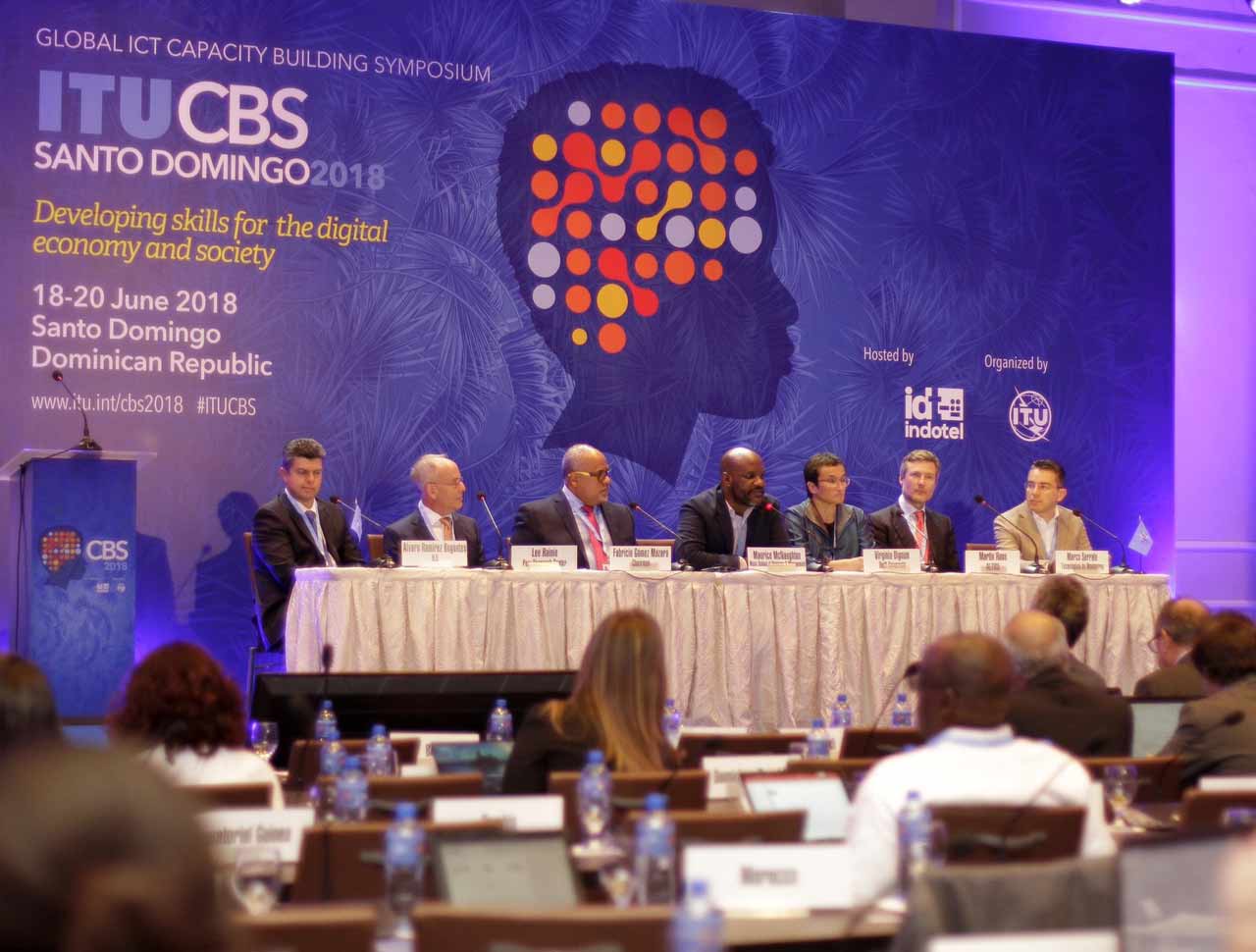Dr. Marco Serrato, EGADE Business School professor and Continuing Education director at Tecnológico de Monterrey, was invited by the United Nations – through the International Telecommunications Union(ITU) – to participate as a panelist in the Global ICT Capacity Building Symposium. This is the most important event organized by this specialized UN agency regarding the development of skills for the new digital economy and society faced by individuals and organizations.
Technologies, such as the Internet of Things, Artificial Intelligence, Big Data, Analytics, among others, are creating a new ecosystem that is transforming our lives. While this brings diverse benefits to the private and public sectors and society in general, it is also accompanied by enormous disruptions and challenges. One of the greatest challenges is the imminent need to develop new skills and competencies, while acknowledging that others are becoming obsolete. For this very reason, through the Global ICT Capacity Building Symposium, the International Telecommunications Union (ITU) invites prominent speakers from all over the world to present the key trends and aspects within the context of the private, academic and government sectors.
Dr. Serrato was invited by the United Nations to participate on the event’s first panel, called Setting the scene: skills requirements for the digital transformation. One of the main conclusions reached in this panel and in the event in general is the need to develop more executives and professionals with the skills and competencies required by today’s digital economy and society. This has resulted in changes to the number and types of jobs, since some functions are disappearing and new ones emerging. This situation demands greater dynamism and mobility between sectors and geographies, by both individuals and organizations. Not only technical competencies, but also lifelong and lifewide soft skills must be considered in order to achieve this successfully and sustainably over time.
The creation of digital agendas in countries and regions was also proposed as a strategic strategy by the delegates from a variety of countries. The need to increase the speed at which universities and higher education institutions respond to these new demands was also acknowledged as a core component of the digital transformation and the Fourth Industrial Revolution. This response rate should also take into consideration not only relevant content and knowledge, but also non-traditional, innovative learning methodologies to address this new environment.
Similarly, the delegates highlighted digital inclusion as a core factor in the immediate future of societies. Creating programs and initiatives that promote the active participation of diverse groups and sectors – allowing them to access the benefits and advantages of these technologies - is a necessary action in every nation, regardless of its level of development. Aspects such as innovation and entrepreneurship were also stressed under this digital perspective, in order to drive greater benefits in economic and social settings.
The second video presents Dr. Serrato’s post-speech interview, highlighting the core aspects of his contributions and recommendations during this space for reflection. In addition, this link outlines the main conclusions of the event, whose general description can be viewed in this video. The results represent core action guides for the international community, which ITU will promote as part of its sustainable development agenda toward 2030, to support individuals, organizations and society in general in the digital transformation.
About the International Telecommunications Union (ITU):
ITU is the United Nations specialized agency for information and communication technologies. Its initiatives call for the active participation of the key actors and organizations from the private and public sectors, academic institutions and this sector’s regulating agencies, to address the challenges and opportunities of its more than seven hundred members located in one hundred ninety-three countries around the world, in the face of the new digital economy and society.
